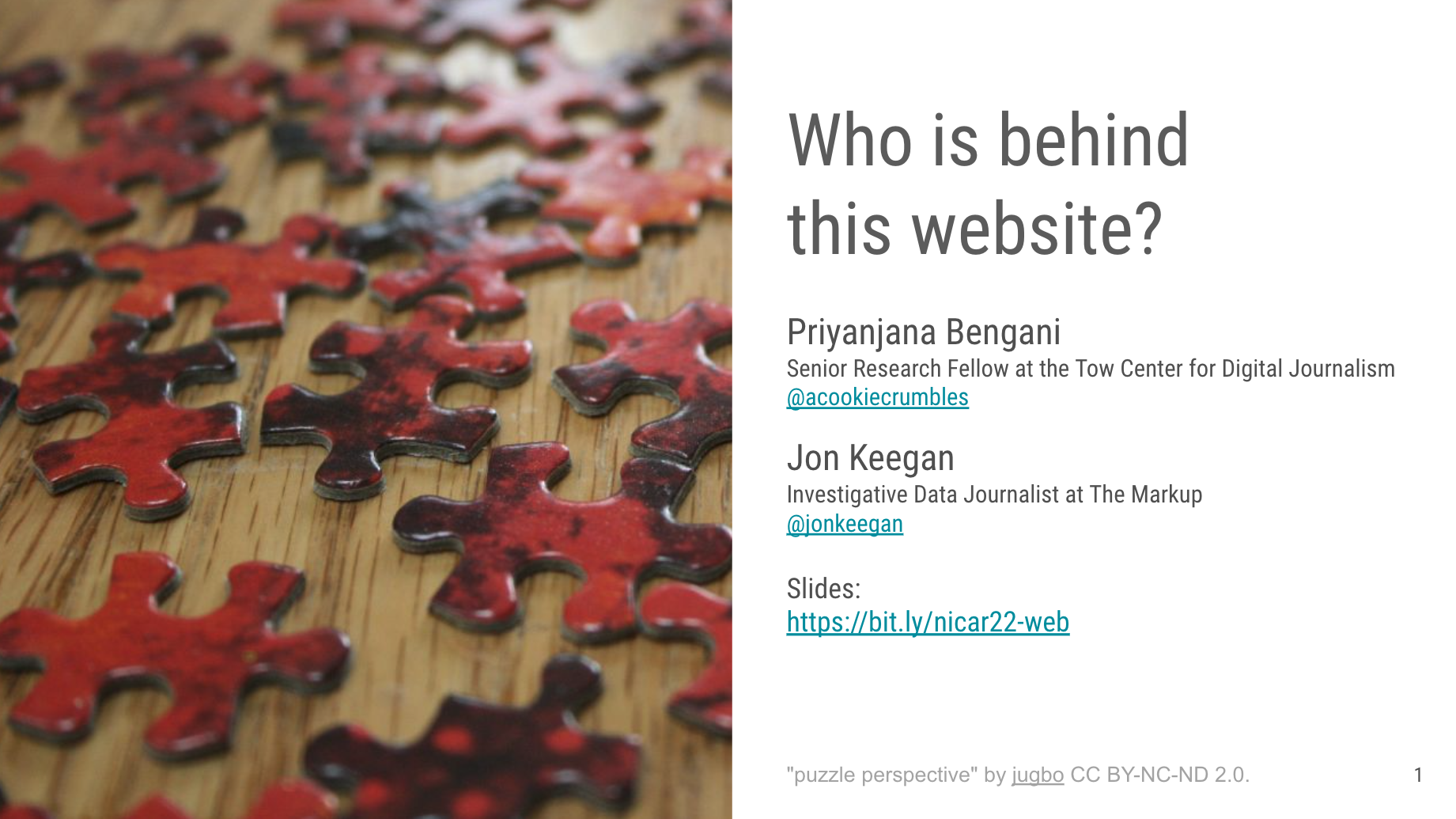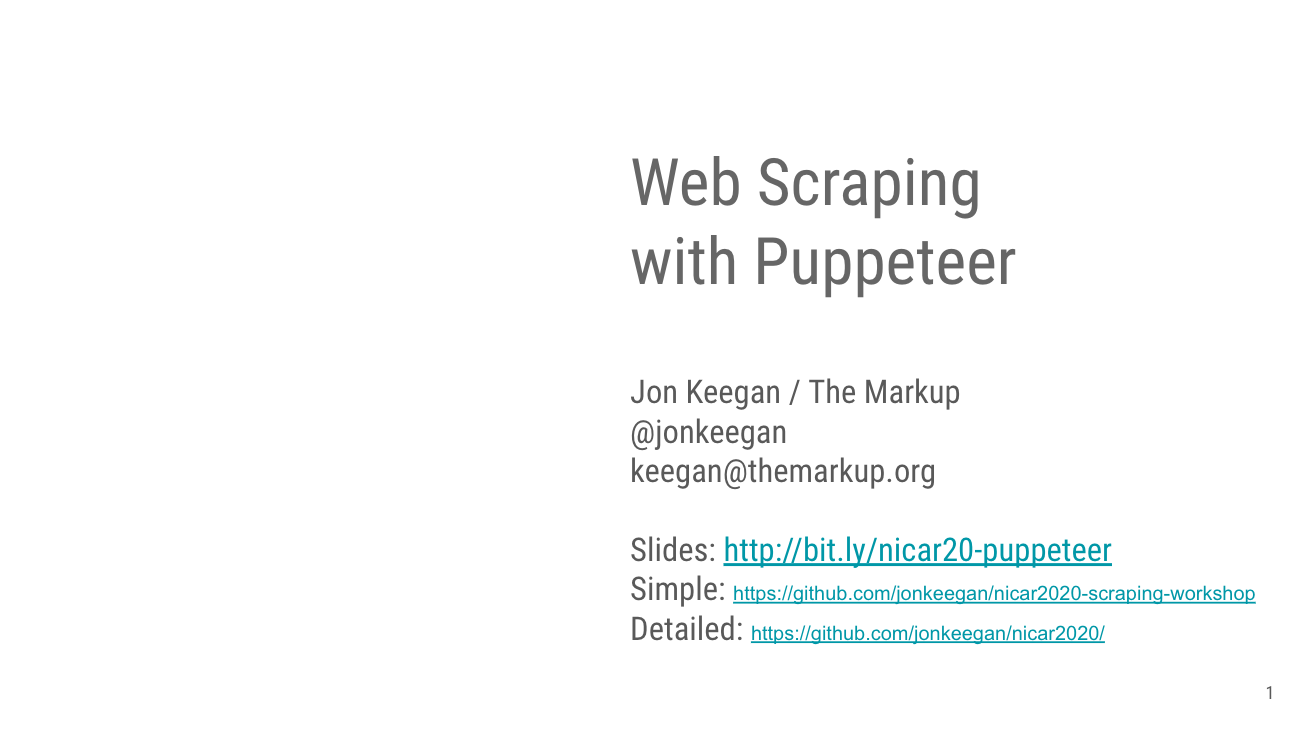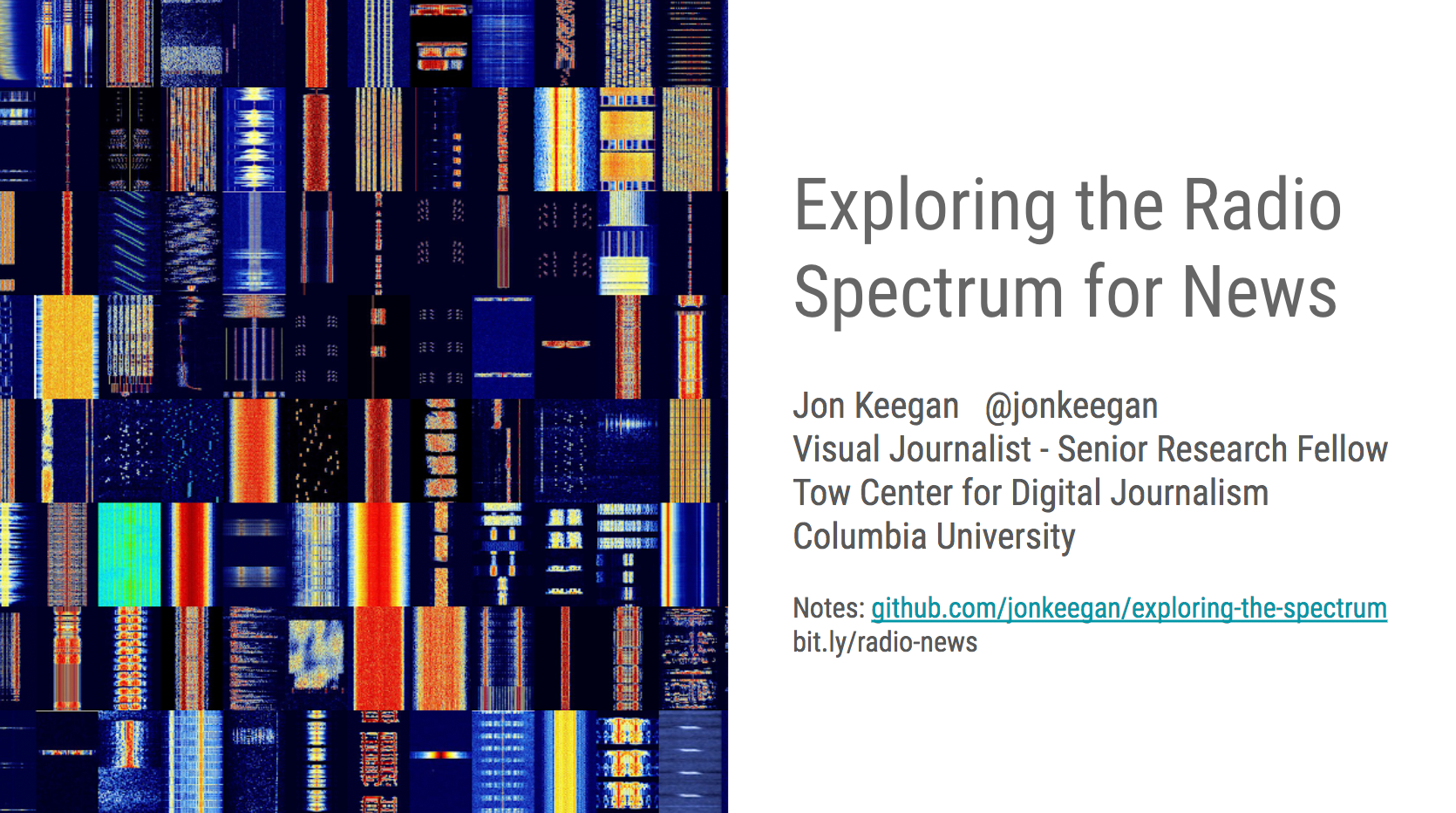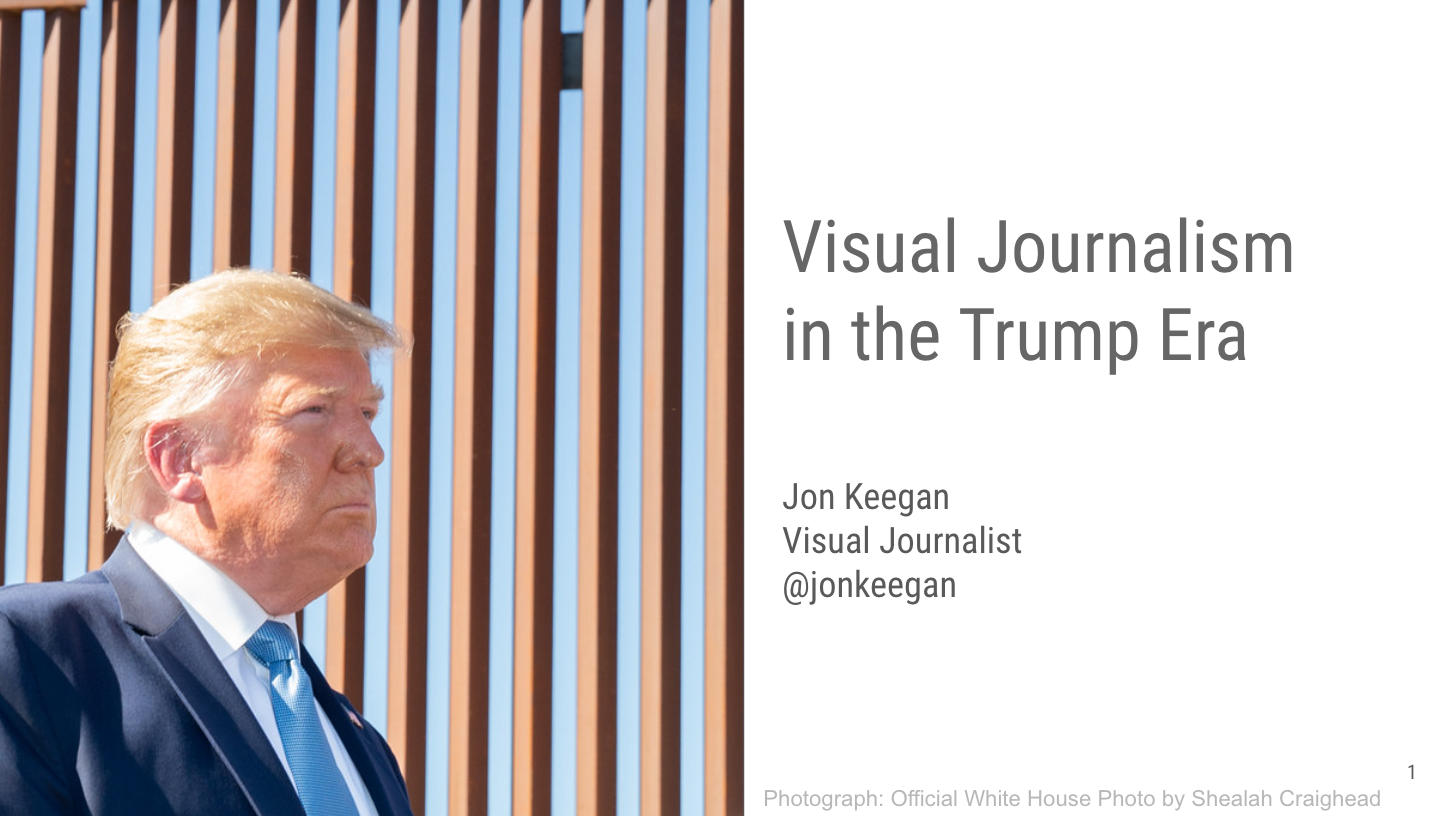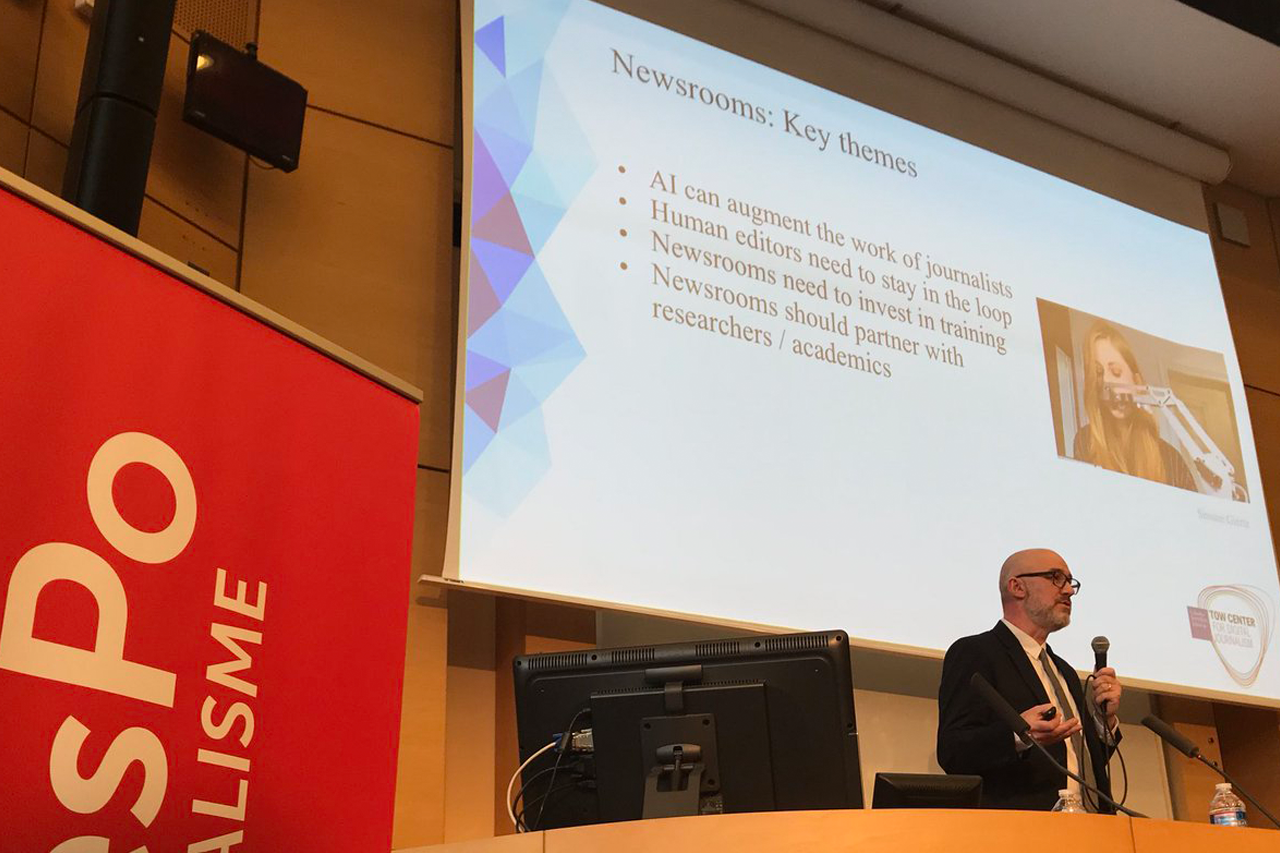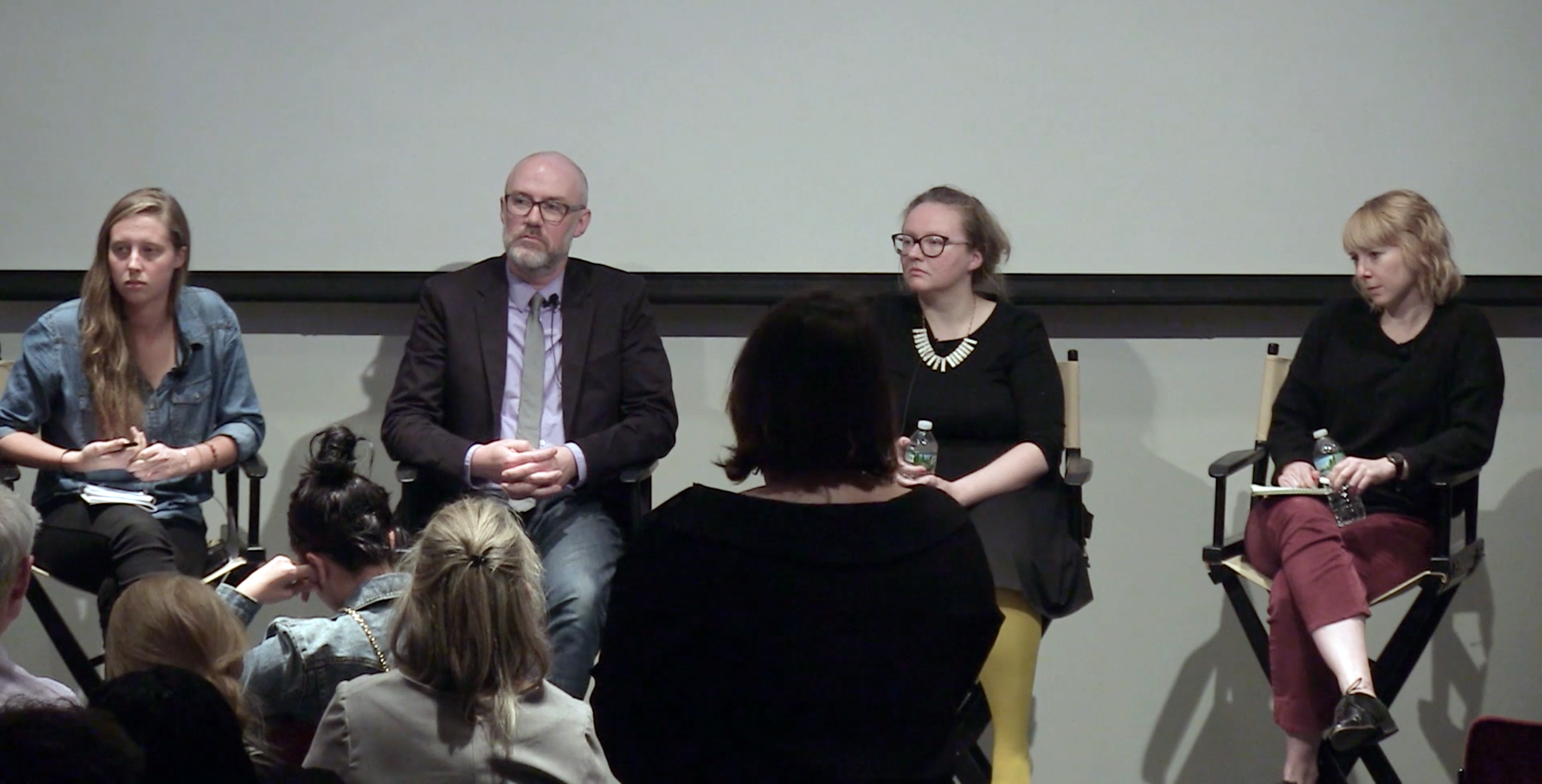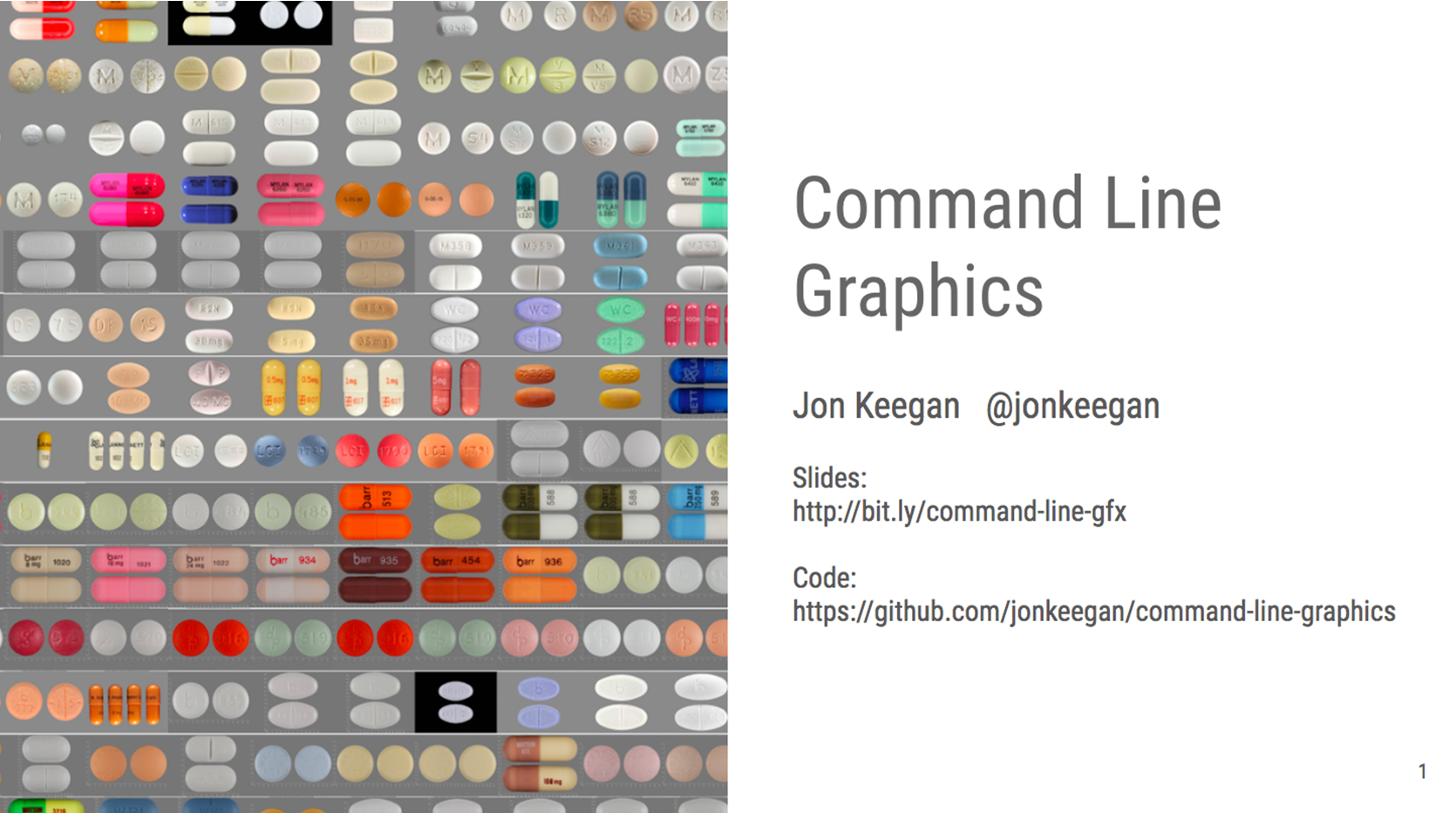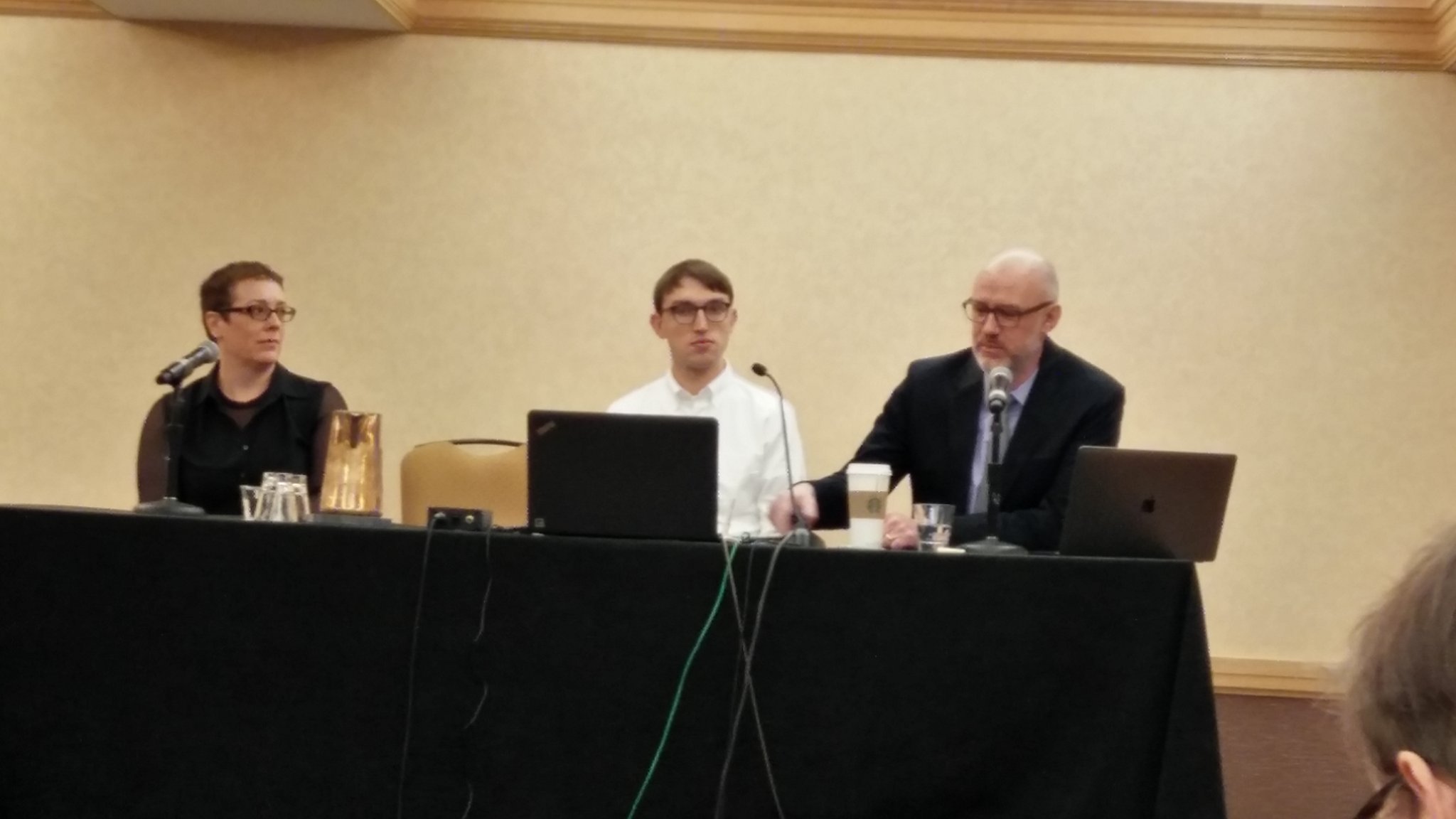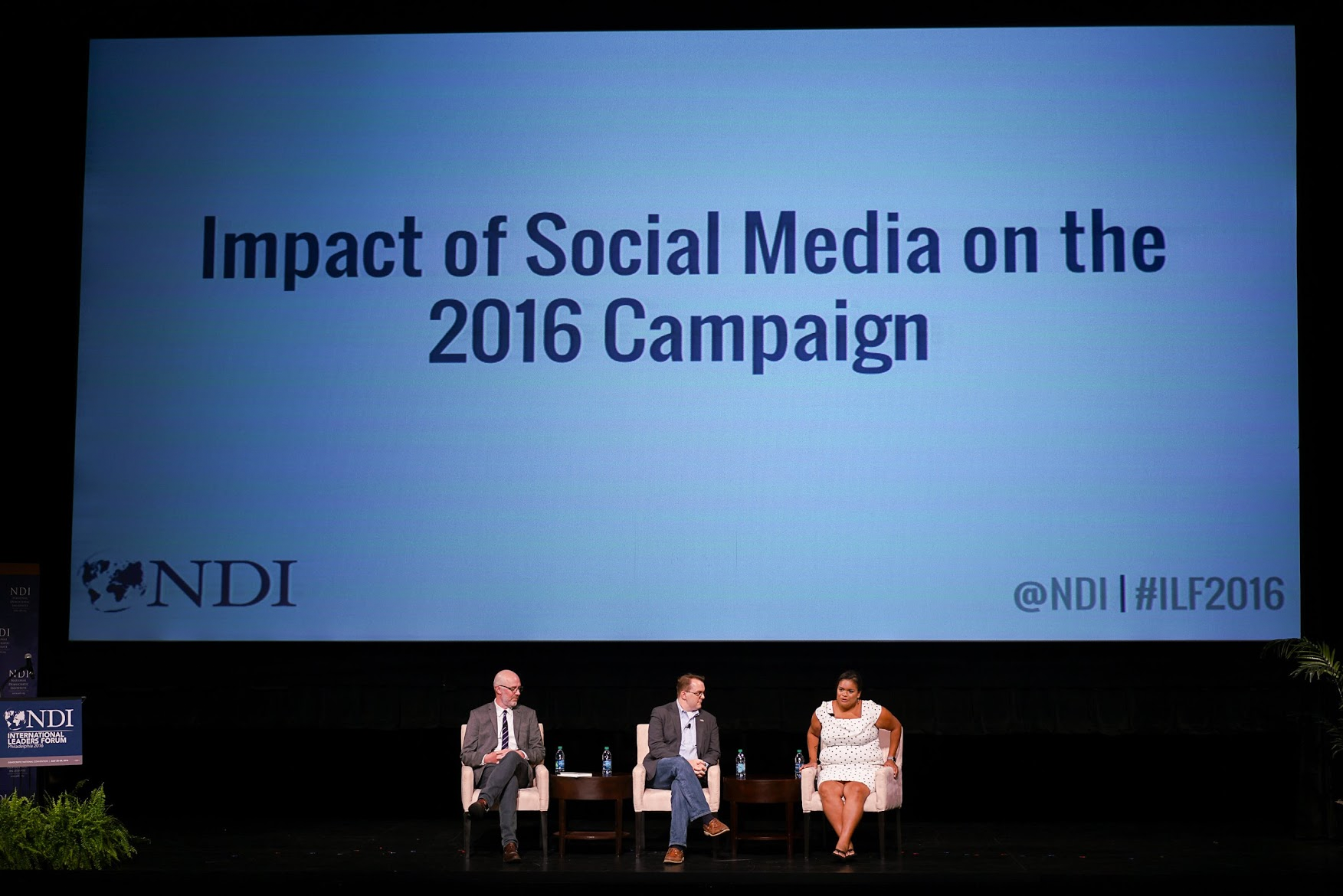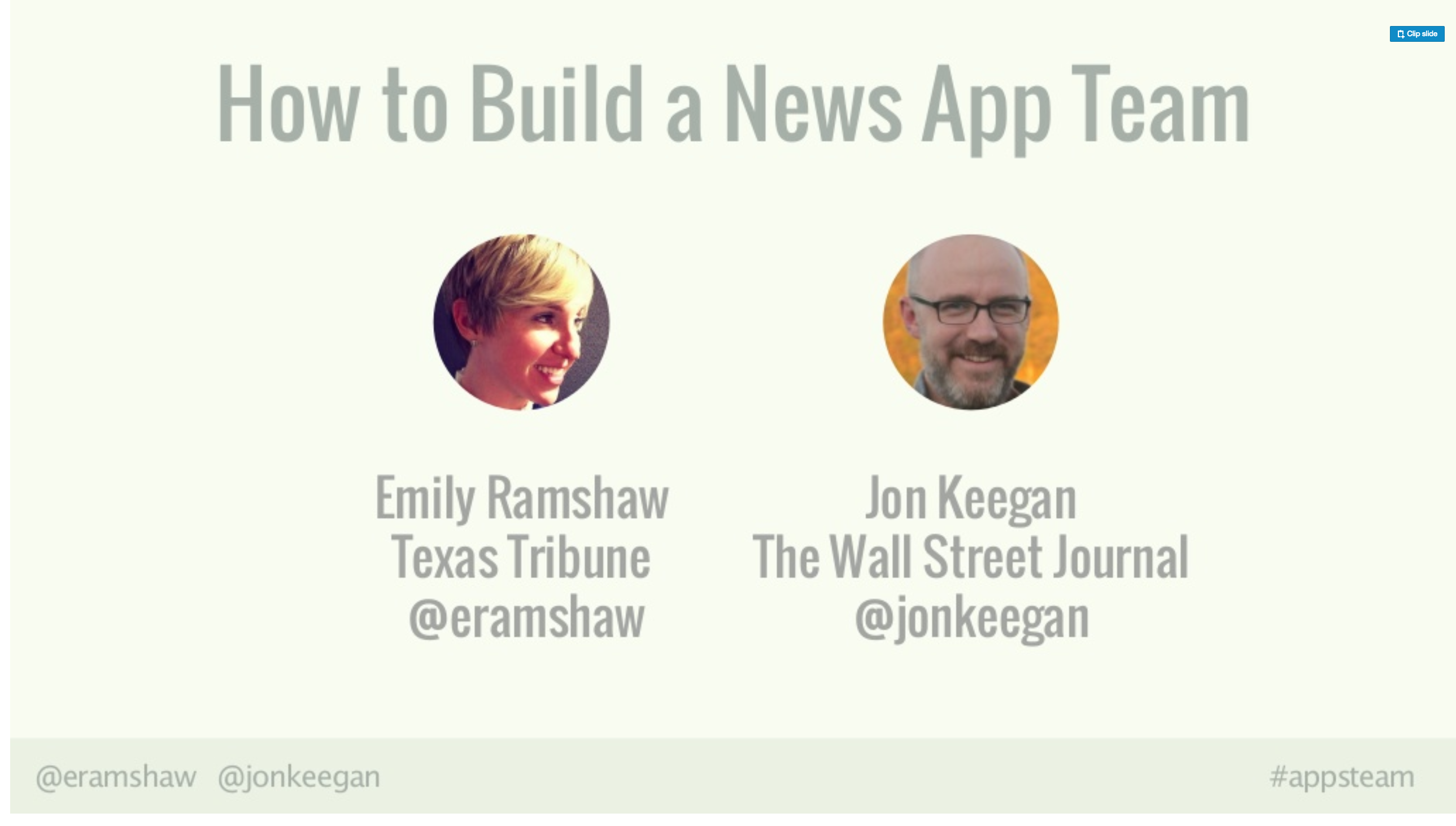Jon Keegan
Investigative Data Journalist
March 4, 2022
Who is behind this website?
NICAR 2022 - Atlanta, GA
Reporting online today, journalists must battle with astroturf campaigns, fake news sites and sketchy shell companies to find out who is behind the story. Usually it leads to a frustratingly common question: Who is behind this website?
Slides: https://docs.google.com/presentation/d/1tRae65Eln072zLbbdIPyeJxt6I_JflRmEYH8cp4Xc84/edit?usp=sharing
March 5, 2020
Web Scraping with Puppeteer
NICAR 2020 - New Orleans, LA
Getting started with web scraping using Puppeteer.
Slides: http://bit.ly/nicar20-puppeteer
March 5, 2020
Exploring the Radio Spectrum for News
NICAR 2020 - New Orleans, LA
Once the exclusive domain of scientists, engineers and HAM radio operators, a new generation of cheap hardware and open source software have cracked open the radio spectrum for hackers and hobbyists – and journalists – to explore. Radios are built into dozens of devices we use every day, and the radio spectrum is a tightly regulated, poorly understood invisible national asset. There are stories flying around in the air around you, and it’s time you started looking for them.
Slides: http://bit.ly/nicar20-radio
September 27, 2018
Visual Journalism in the Trump Era
Meg - Göteborg Media Days / Bokmässan 2018 - Göteborg, Sweden
Since the 2016 presidential election, journalists in the U.S. have struggled to adapt to a chaotic, rapidly changing news environment. This moment coincides with an exciting time for visual storytelling in news, which has produced some vital and memorable work in this challenging time employing data analysis, data visualization and often simply Trump’s own words – to hold this administration accountable.
Slides: http://bit.ly/trump-visuals
December 4, 2017
Key findings about AI, Platforms and Publishers / Artificial Intelligence, Platforms and Publishers, Key Elements
SciencesPo: Les nouvelles pratiques du journalisme 2017 - Paris, France
Slides: http://bit.ly/tow-ai-paris
August 4, 2017
Exploring the Radio Spectrum for News
SRCCON 2017 - Minneapolis, MN
Once the exclusive domain of scientists, engineers and HAM radio operators, a new generation of cheap hardware and open source software have cracked open the radio spectrum for hackers and hobbyists – and journalists – to explore. Radios are built into dozens of devices we use every day, and the radio spectrum is a tightly regulated, poorly understood invisible national asset. There are stories flying around in the air around you, and it’s time you started looking for them.
Slides: http://bit.ly/radio-news-slides
April 5, 2017
Breaking the 'Internet Bubble'
International Center of Photography” - New York, NY
In the months following the 2016 election, the phenomena of the 'Internet bubble' has quickly become well-documented. Writers, thinkers, and cultural producers have wondered aloud: 'why in a robust, prolific information environment do we consume and share out media that confirms our pre-existing biases?' This program is a live exploration of this issue and, more importantly, a forum for discussing solutions on how to bridge our nation’s divide and use art, storytelling, and visual analysis to exit our own echo chambers.
March 11, 2017
Is Curated Content Creating Tunnel Vision?
SXSW 2017 - Austin, TX
A 2016 study by the Pew Research Center found that 62 % of adults get news on social media. If our newsfeeds are our primary news source, should networks be sharing both sides of the story? Unless we engage with diverse content and views, we're only served the opinions we 'like.' In this session, panelists will explore both sides of the coin – do social networks have a responsibility to deliver 'mixed views housing,' or are we to blame for our own tunnel vision ?
March 5, 2017
Command line graphics
NICAR 2017 - Jacksonville, FL
Some of the most powerful tools for creating visuals and working with images lie hidden in your terminal. We'll do an overview of some of these amazing (FREE!) tools – such as ImageMagick and ffmpeg – and see some real-world techniques for working with large collections of images, and how I use these tools in my projects. Some of the things we'll cover: make a timelapse video from sequential images, extract and save metadata embedded in photos, create image quilts, and build animated GIFs from videos.
Slides: http://bit.ly/command-line-gfx
March 4, 2017
Breaking through the Facebook Wall: Reporting on Facebook using components of Facebook
NICAR 2017 - Jacksonville, FL
Tips for how journalists can report on Facebook, using the platform's own tools and data.
Slides: http://bit.ly/facebook-nicar17
July 21, 2016
Impact of Social Media on the 2016 Campaign
National Democratic Institute's International Leadership Forum - Philadelphia, PA
Slides: http://bit.ly/BFRF-prez
March 8, 2016
Command line graphics
NICAR 2016 - Denver, CO
Some of the most powerful tools for creating visuals and working with images lie hidden in your terminal. We'll do an overview of some of these amazing (FREE!) tools – such as ImageMagick and ffmpeg – and see some real-world techniques for working with large collections of images, and how I use these tools in my projects. Some of the things we'll cover: make a timelapse video from sequential images, extract and save metadata embedded in photos, create image quilts, and build animated GIFs from videos.
Slides: http://bit.ly/command-line-gfx
September 27, 2014
How To Build A News Apps Team
ONA 2014 - Chicago, IL
Building a team is one of the hardest things you can do as a manager. How do you recruit and train talent? How do you make sure you have the right mix of people, and that they are applying their skills to the right projects? Our two experts will talk through their experiences, then hold an office-hours type session to talk through issues with session participants.


